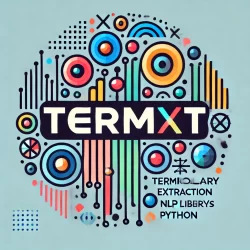1. Managing Terminology Databases
At the core of my job is the creation and maintenance of terminology databases (or glossaries). These serve as the backbone for translators and content creators, ensuring that specific terms—whether technical, legal, or industry-specific—are translated accurately and consistently.
A large part of my day involves:
- Researching terms: I delve into industry-specific literature, technical manuals, and other authoritative resources to define terms precisely.
- Documenting terminology: Each term is cataloged with its definition, usage notes, language equivalents, and often, context examples. These details ensure that terms are applied uniformly by translation teams across different markets.
- Updating databases: Language evolves, and new terms frequently emerge. It’s crucial to update terminology databases regularly to keep pace with these changes.
This process ensures that even highly technical documents maintain the same level of clarity and accuracy, regardless of the language.
2. Research and Standardization
In the morning, I often start with terminology research, which involves finding the most accurate translation for new or complex terms. This step is critical when handling industries like medical, legal, or technical translations, where precision is non-negotiable.
My research might include:
- Consulting industry experts or subject-matter experts (SMEs) to understand the nuances of a term.
- Collaborating with linguists and translators to decide how a term fits within different linguistic contexts.
- Cross-referencing resources like specialized dictionaries, technical glossaries, and standards organizations to validate the proper use of terms.
Standardizing terminology is key to reducing confusion or miscommunication across translations and ensuring that localized content aligns with the industry’s technical or legal requirements.
3. Collaborating with Cross-Functional Teams
As a terminologist, collaboration is a daily part of my role. I work closely with:
- Translators and reviewers: I support them by providing linguistic advice on specific terminology and ensuring that they follow the established guidelines in the glossary.
- Project managers: They consult me when managing large, complex localization projects that require uniform terminology across multiple languages.
- Subject-matter experts: When working in highly specialized industries, I often collaborate with these experts to confirm the precise meaning of a term and its correct usage.
Effective collaboration ensures the smooth flow of projects and that all team members are on the same page regarding terminology choices.
4. Developing and Reviewing Terminology Guidelines
Another crucial aspect of my job is creating and maintaining terminology guidelines. These are essential to ensure that translators and content creators are all using terms in the same way. I often:
- Develop guidelines for specific projects, detailing the use of industry-specific terms, tone, and language preferences.
- Review existing guidelines to ensure they remain relevant and reflect any updates to the terminology or translation processes.
These guidelines act as a linguistic blueprint, helping translators understand the correct usage of terms in various contexts and across different markets.
5. Ensuring Consistency and Quality Control
Consistency is a hallmark of high-quality translations, and as a terminologist, I play a critical role in maintaining this consistency. I review translations for proper usage of terminology, ensuring that terms are applied uniformly across all content types.
My day may include:
- Spot-checking translations to ensure adherence to the glossary and style guides.
- Conducting linguistic audits to verify the accuracy of terminology use across different markets.
- Providing feedback to translators when terms are misused or need clarification.
These quality control steps are crucial for maintaining the accuracy and credibility of translated materials, particularly in industries like pharmaceuticals, where mistranslations can have serious consequences.
6. Staying Up-to-Date with Industry Trends
Like many localization roles, the world of terminology is constantly evolving. I make it a point to stay informed about industry trends, language developments, and advancements in computer-assisted translation (CAT) tools. Whether it’s attending webinars, reading linguistic journals, or networking at industry conferences, staying current allows me to provide the best resources and advice for the projects I support.
With new industries and technologies emerging, there’s always something new to learn—whether it’s how AI is changing translation processes or how industry-specific language is evolving.
Challenges Faced by Terminologists
While rewarding, the role of a terminologist also comes with its fair share of challenges:
1. Balancing Precision with Flexibility
Terminology requires exactness, but language is also inherently flexible. A term that works perfectly in one language might not have an exact equivalent in another. Balancing this need for precision while ensuring that translations remain natural and culturally appropriate is one of the daily challenges I face.
2. Staying Current with Industry-Specific Terminology
In fast-paced sectors like tech, medicine, and finance, new terms emerge constantly. Keeping terminology databases up-to-date while ensuring translators stay informed about these changes can be a demanding task, especially when working across multiple languages.
3. Ensuring Consistency Across Large Volumes of Content
With large-scale projects involving multiple languages, ensuring that every term is used consistently is no small feat. This challenge requires frequent communication with translators, regular audits, and sometimes manual oversight.
The Rewards of Being a Terminologist
Despite these challenges, being a terminologist is incredibly rewarding. The satisfaction comes from knowing that the terminology I manage helps maintain clarity, consistency, and accuracy across different languages and markets.
1. Enhancing Global Communication
Knowing that I’m contributing to accurate and effective communication across cultures is deeply fulfilling. Terminology management helps ensure that brands are represented consistently across the globe, from technical documentation to marketing campaigns.
2. Building Expertise in Specialized Fields
As a terminologist, I constantly expand my knowledge in specialized fields. Whether it’s medical terminology, legal jargon, or tech-specific language, I have the opportunity to immerse myself in the language of various industries, making my work both intellectually stimulating and impactful.
3. Supporting the Translation Process
Translators rely on my work to deliver accurate and contextually appropriate translations. Seeing how the terminology I manage makes their jobs easier—and improves the quality of the final product—brings a strong sense of achievement.
The Impact of a Terminologist
Being a terminologist is about much more than managing words—it’s about ensuring that language bridges the gap between cultures, industries, and people. By managing terminology, collaborating with teams, and maintaining linguistic consistency, I help drive the success of localization projects and ensure that content resonates with global audiences.
In summary, a day in the life of a terminologist involves:
- Researching and managing terminology databases.
- Collaborating with cross-functional teams to ensure consistency.
- Providing support and guidance to translators.
- Staying current with industry trends and ensuring quality control.
It’s a dynamic role that blends linguistic expertise with strategic thinking, making it a fulfilling and exciting career path for those passionate about language and localization.





